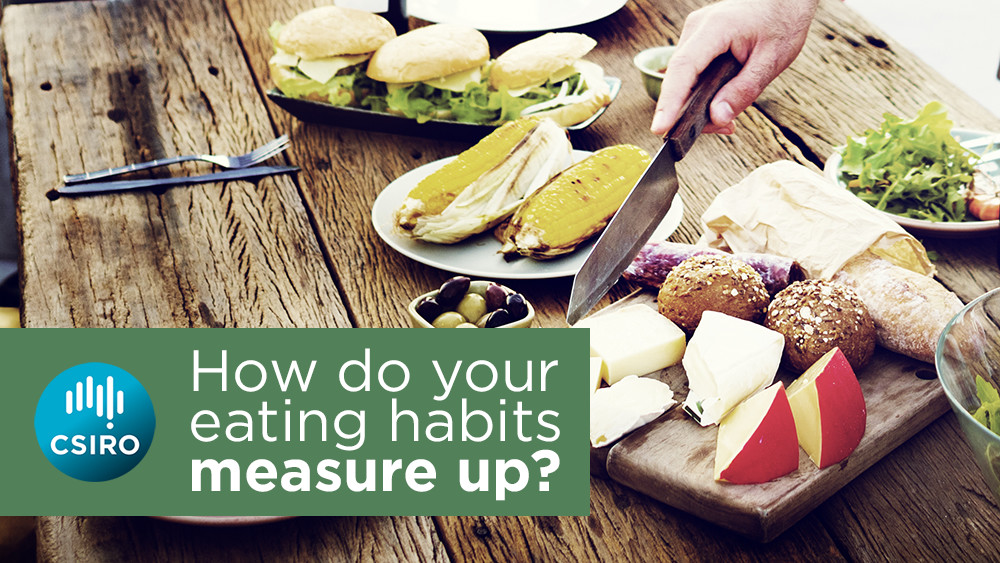Our 2016 Healthy Diet Score survey is using data about Australians' eating habits to measure our impact on the environment.

Taking a bite from a deli sandwich or a sip from a coffee, we all intuitively know that we’re consuming something with a history, ingredients that came from somewhere: coffee beans picked in El Salvador perhaps, lettuce wrenched by a farmer in the wee hours of the morning, the sliced rump of some cow.
But through naivety or a lack of trying, we just can’t imagine the true history of our food and drink and the toll it has taken on the planet before arriving in our hands. That’s why our Healthy Diet Score — Australia’s largest dietary survey — is taking an environmental turn this year.
The Healthy Diet Score is a 10 minute online survey that takes account of your, yes your, typical eating and drinking habits. It is easy to complete, not grilling but revealing, and fun to compare — so fun that last year 70,000 Australians completed it.
(If you were curious about how we did, it’s not good. Check out an Australian’s typical diet, here.)
As you could imagine, 70,000 data points give a powerful bird’s-eye view of what the country is eating — and how best to curb it for the better. With such insight, this year’s data will be used to look not just at diet and its impact on our own health, but the country’s health, too.
The bad news is: last year’s national diet score was, as alluded to, troubling. We scored 61/100 on average. The recommended intake of junk food? Yeah — we ate three times that amount. Women consumed more vegetables and generally ate better than men, and everyone was drinking enough water. Well done. But it was pretty poor, otherwise.
The good news is: healthy fuel for us is healthy fuel for the spaceship we call Earth. The foods to reduce — discretionary (junk) foods — take the biggest toll on the planet; our research suggests junk food accounts for up to a quarter of our daily 14.5 kg of diet-related greenhouse gas emissions.
By eating less of these foods, we can raise the wellbeing and extend the lifespan of ourselves and our planet. Here’s some of our research on our (typical Australian’s) dietary carbon footprint.
On top of the environmental component, this year’s Healthy Diet Score also tracks vegetarian and gluten free diets, offering tailored advice for anyone struggling to meet the national dietary guidelines.
The results of the 2016 Healthy Diet Score, #HealthyDietScore, will be collated by our researchers and released later in the year.
We have just one body to live and diet with, and just one planet, too. Eating well is one of the easiest win-wins. Tuck in now and jump on that survey, here.



29th August 2016 at 1:56 am
I have to agree with Cathy above, I’m a vegetarian, if anything I probably have more alcohol than I should but it isn’t clear where that’s included, discretionary foods? In any case I’ve just had a full health check-up and all my blood scores (cholesterol, liver function etc.) were good, so it can’t be all that bad. This could be discouraging to people with less healthy diets.
11th May 2016 at 3:45 pm
I consider I have a very healthy diet — lots of fruit and veg etc — to the point people say I eat so well it’s ridiculous. I only scored 67 out of 100, with a rec to eat more vegies and less junk. I have a few piece of chocolate once week, never eat junk food or processed meat.
I think the bar is set way too high! I think it will discourage rather than encourage.